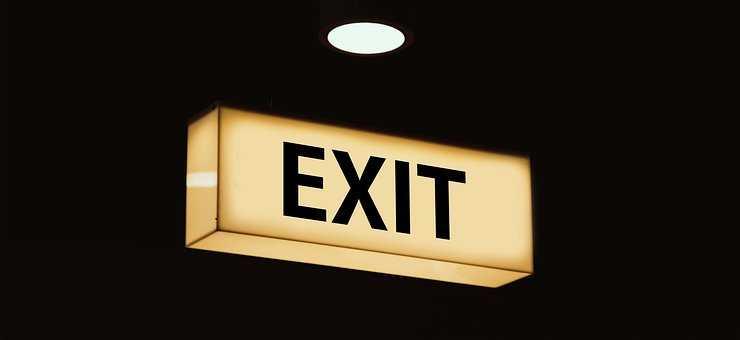Why The Robots Are Not Going To Eat Your Job
Curated from: The Danny Miranda Podcast
Ideas, facts & insights covering these topics:
11 ideas
·3.44K reads
36
1
Explore the World's Best Ideas
Join today and uncover 100+ curated journeys from 50+ topics. Unlock access to our mobile app with extensive features.
Startups and Category design
Startups exist because they radically change the category. A startup can either make a better version of something or create a new way of seeing a problem.
If a startup tries to make a better version, they’re playing the comparison game by the leader’s rules. A better way is to be the only one. In a world that sells bananas, you want to be the world’s first apple.
Category design is then creating a minimum viable different future that early adopters choose. By choosing that different future, they join your movement. As the movement grows, it becomes a market because it defines the category.
28
539 reads
25
497 reads
Democratising category designers
The printing press was a democratising technology. When the Roman Empire became corrupt, the Pope tried to establish order. But ruling institutions often become more interested in keeping their status and power than serving their real function and consequently started to fleece their people.
From this came three technologies:
- The printing press allowed Martin Luther to print the Bible, and suddenly lots of people could read.
- Double-entry accounting let merchants of Venice trade in a decentralised way without central authorities.
- Gunpowder changed the asymmetry of power that knighthood enforced.
24
304 reads
Modern-day democratising category designers
The internet is much like the printing press because anyone can circumvent the traditional media.
Bitcoin is a sophisticated accounting system that enables people to bypass the fiat currency system.
23
313 reads
The exit voice
When people see too many problems in a state, country, a product, and there is a denial that things need to change, they will abandon it.
Exiting broken institutions will give a voice its power.
- Bitcoin is an exit voice. It said that the fed is mistreating the dollar and the only choice is to opt-out and own a different kind of currency.
- The cloud culture is another. People can exit physical locations but still be part of a networked economy where it pays you but doesn’t have much of a hold on you.
22
258 reads
The natural cycle in history
Understanding how broken institutions work is merely observing a natural cycle:
A centralised organisation can make decisions quickly, but with time it becomes a caricature in itself. So it will slow down, people in the centre will make all the decisions, and nobody will be able to get anything done without asking for permission.
That's when you want to be decentralised. Everyone can make things happen independently, but if that carries on for too long, there will be too many different ways to do something, and efforts will be duplicated. This is when you will move back to centralisation.
24
228 reads
Startups creating a different future
In the 20th century, you got rich by investing in companies that were a bet against a different future.
Startups used to be something similar to a hobby turned into a business, but they are going to animate breakthroughs and create a different future. They are creating new categories instead of dominating existing categories.
The future will happen because of us. We can either join movements that will create breakthroughs that build a different future, or we will tear things down if we make bad choices as a society,
24
233 reads
How to identify and join a breakthrough movement
- The company can’t be compared to any other. It envisions a different future.
- It post-dates the creation of the internet.
- Do the people leading the institution understand software in a fundamental way and use levers to move the world?
23
242 reads
Robots eating the jobs
When people say that robots are going to eat the jobs, they reveal a particular world view where the world is centred on the industrial giant institutions, such as factories and big businesses where every person is part of the cog. But we don't live in that world anymore.
Software is eliminating the need for people to work at companies. In the past, you had to work at a company because you couldn’t produce your product at scale. Now people can exit that system. They can use software to build their product and distribute it. They can be in multiple networks simultaneously.
25
247 reads
How to train people for this century
In the last century, we trained children to be employees who follow the rules. They had to subordinate their own desires, ideas and creativity to the organisation's needs.
In the 21st century, we need to teach children to define and shape their own destiny. We need to teach the importance of personal agency and understand that the world is working in a decentralised way. Learners should focus on their strengths, learn computer literacy, financial literacy, probabilities, and understand how to think about the odds.
31
270 reads
IDEAS CURATED BY
Melanie Campbell's ideas are part of this journey:
Learn more about technologyandthefuture with this collection
Understanding the importance of constructive criticism
How to receive constructive criticism positively
How to use constructive criticism to improve performance
Related collections
Similar ideas
10 ideas
#218: Sahil Bloom – Become A Magnet For Success
The Danny Miranda Podcast
1 idea
How I Built a 2.3 Million Follower Brand WHILST Studying - Natacha Océane
Deep Dive with Ali Abdaal
7 ideas
Leading Blog: A Leadership Blog
leadershipnow.com
Read & Learn
20x Faster
without
deepstash
with
deepstash
with
deepstash
Personalized microlearning
—
100+ Learning Journeys
—
Access to 200,000+ ideas
—
Access to the mobile app
—
Unlimited idea saving
—
—
Unlimited history
—
—
Unlimited listening to ideas
—
—
Downloading & offline access
—
—
Supercharge your mind with one idea per day
Enter your email and spend 1 minute every day to learn something new.
I agree to receive email updates






